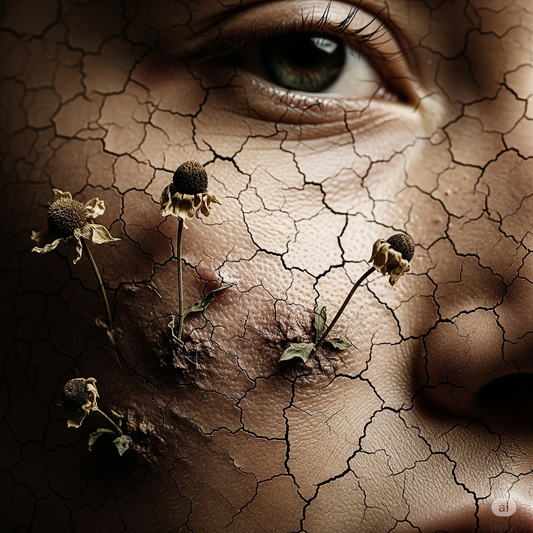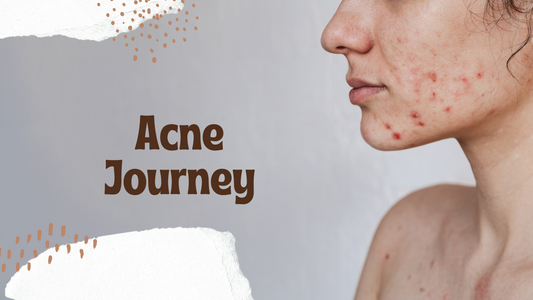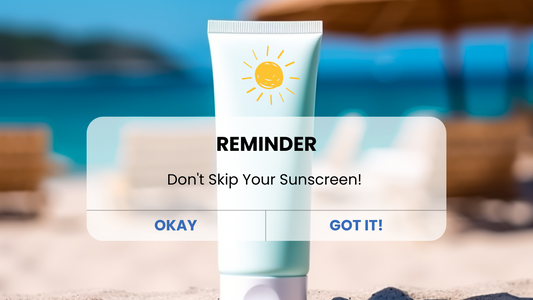Over-the-counter (OTC) skincare products are widely available and often marketed as solutions for various skin concerns. However, not everyone experiences the desired results, leading to frustration and wasted money. Understanding why OTC skincare doesn’t work for everyone can help individuals make more informed choices about their skincare routine.
Table of Contents
Your Skin Type Matters
One of the primary reasons OTC skincare products fail to deliver uniform results is that everyone has a unique skin type. Skin types generally fall into categories such as oily, dry, combination, sensitive, and normal. A product formulated for oily skin may not work well for someone with dry skin and vice versa. Many OTC products are created for general use and may not cater to specific skin needs.
According to a study published in the Journal of the American Academy of Dermatology, up to 50% of people misidentify their skin type, leading to incorrect product choices and ineffective results (Draelos, 2018).
Not All Ingredients Are Created Equal
Many OTC skincare products contain common active ingredients like salicylic acid, benzoyl peroxide, or retinol. While these ingredients can be effective, they may cause irritation or allergic reactions in some individuals. For example, people with sensitive skin might experience redness, dryness, or breakouts when using products containing harsh chemicals or fragrances.
Are the Active Ingredients Strong Enough?
OTC skincare products typically contain lower concentrations of active ingredients compared to prescription-based treatments. This is done to ensure safety for a broad audience, but it also means that these products may not be potent enough for individuals with severe skin conditions such as acne, hyperpigmentation, or rosacea. Prescription products often provide precise formulations that deliver more noticeable results.
For example, prescription-strength retinoids like tretinoin have been shown to reduce acne by 70% in clinical trials, whereas OTC retinol formulations typically show only a 20-30% improvement.
User Errors Can Reduce Effectiveness
Many users do not follow proper application guidelines, leading to ineffective results. Skincare requires consistency, and factors such as applying too much or too little, skipping sunscreen, or mixing incompatible ingredients can hinder a product’s effectiveness. For instance, using vitamin C with benzoyl peroxide can reduce its potency, making the treatment ineffective.
Genetics and Skin Health
Genetics plays a crucial role in determining how skin responds to skincare products. Some individuals are naturally more prone to acne, pigmentation, or premature aging due to their genetic makeup. No matter how effective a skincare product claims to be, it may not completely override genetic predispositions.
The Impact of Lifestyle and Environment
Diet, stress levels, sleep patterns, and exposure to pollution significantly affect skin health. Even the best OTC products may not work if external factors such as smoking, poor diet, or chronic stress contribute to skin problems. Environmental factors, including humidity and UV exposure, can also impact how well skincare products perform.
The Misleading Power of Marketing
The skincare industry is flooded with marketing claims that can create unrealistic expectations. Many people expect instant results from OTC products due to exaggerated advertising, leading to disappointment when improvements take longer or do not occur. Additionally, skincare trends like “miracle” ingredients or celebrity-endorsed products may not always be backed by solid scientific evidence.
A survey by Statista(2003) reported that 64% of consumers purchase skincare based on advertising claims, despite only 25% reporting noticeable improvements from their products. This indicates a significant gap between marketing promises and actual product performance.
Conclusion
While OTC skincare products can be beneficial for mild concerns and maintenance, they do not work for everyone due to variations in skin type, ingredient sensitivity, product potency, genetic influences, and lifestyle factors. Understanding these limitations can help individuals make more informed decisions about their skincare routine, potentially opting for professional guidance when needed.
Frequently Asked Questions
Yes, skincare products do have a shelf life, and it's essential to be aware of it. These products contain ingredients that can degrade over time, affecting their efficacy and safety. Factors like exposure to air, light, and temperature can accelerate this process. Most products feature a "period after opening" (PAO) symbol, indicating how long they remain usable after being opened. This is typically represented by a jar icon with a number followed by the letter "M" (for months). Using expired skincare can lead to skin irritation, allergic reactions, or reduced effectiveness. Additionally, bacteria can proliferate in old products, posing a risk of infection. Therefore, it's crucial to check expiration dates and PAO symbols to ensure your skincare routine remains safe and effective.
Whether or not to do skincare is a personal choice. While a consistent routine can improve skin health and appearance, it's not mandatory. Some individuals naturally have resilient skin and may not experience significant issues without a regimen. However, neglecting skincare can lead to problems like dryness, accelerated aging, or increased susceptibility to environmental damage. If your skin is comfortable and healthy without products, that's perfectly fine. If you experience issues, a basic routine might be beneficial.
Glossary
OTC (Over-the-Counter): Refers to medications or products available for purchase without a doctor's prescription.
Skin Type: The classification of skin based on its characteristics, such as oil production, moisture levels, and sensitivity (e.g., oily, dry, combination, sensitive, normal).
Salicylic Acid:A beta-hydroxy acid (BHA) commonly used in skincare to exfoliate the skin and treat acne.
Genetic Predispositions: Inherited tendencies to develop certain conditions or traits.
Chronic Stress:Prolonged or recurring stress that can negatively impact health.
References:
1. Draelos, Z. D. (2018). "Cosmetic Dermatology: Products and Procedures." Wiley-Blackwell.
2. Bowe, W. P., & Shalita, A. R. (2008). "Effective over-the-counter acne treatments." Dermatologic Therapy, 21(2), 170-180.
3. Mukhopadhyay, P. (2011). "Cleansers and their role in various dermatological disorders." Indian Journal of Dermatology, 56(1), 2-6.
4. Lain, E. (2020). "The Role of Active Ingredients in Over-the-Counter Skincare." Journal of Clinical and Aesthetic Dermatology, 13(4), 34-40.
5. Zasada, M., Budzisz, E., & Rotsztejn, H. (2019). "The influence of environmental factors on skin aging." Advances in Dermatology and Allergology, 36(5), 392-397.
6. Zeichner, J. A. (2016). "Over-the-counter acne treatments: A review." Journal of Drugs in Dermatology, 15(1), 23-28.
7. Statista (2023). "Consumer behavior in skincare purchases." Retrieved from [www.statista.com](https://www.statista.com/)
8. Mintel Research (2022). "The Rise of Personalized Skincare." Retrieved from [www.mintel.com](https://www.mintel.com/)
9. The Journal of Investigative Dermatology (2020). "Genetic Influences on Skin Aging." Retrieved from [www.jidonline.org](https://www.jidonline.org/)
10. World Health Organization (2019). "The Impact of Pollution on Skin Health." Retrieved from [www.who.int](https://www.who.int/)





